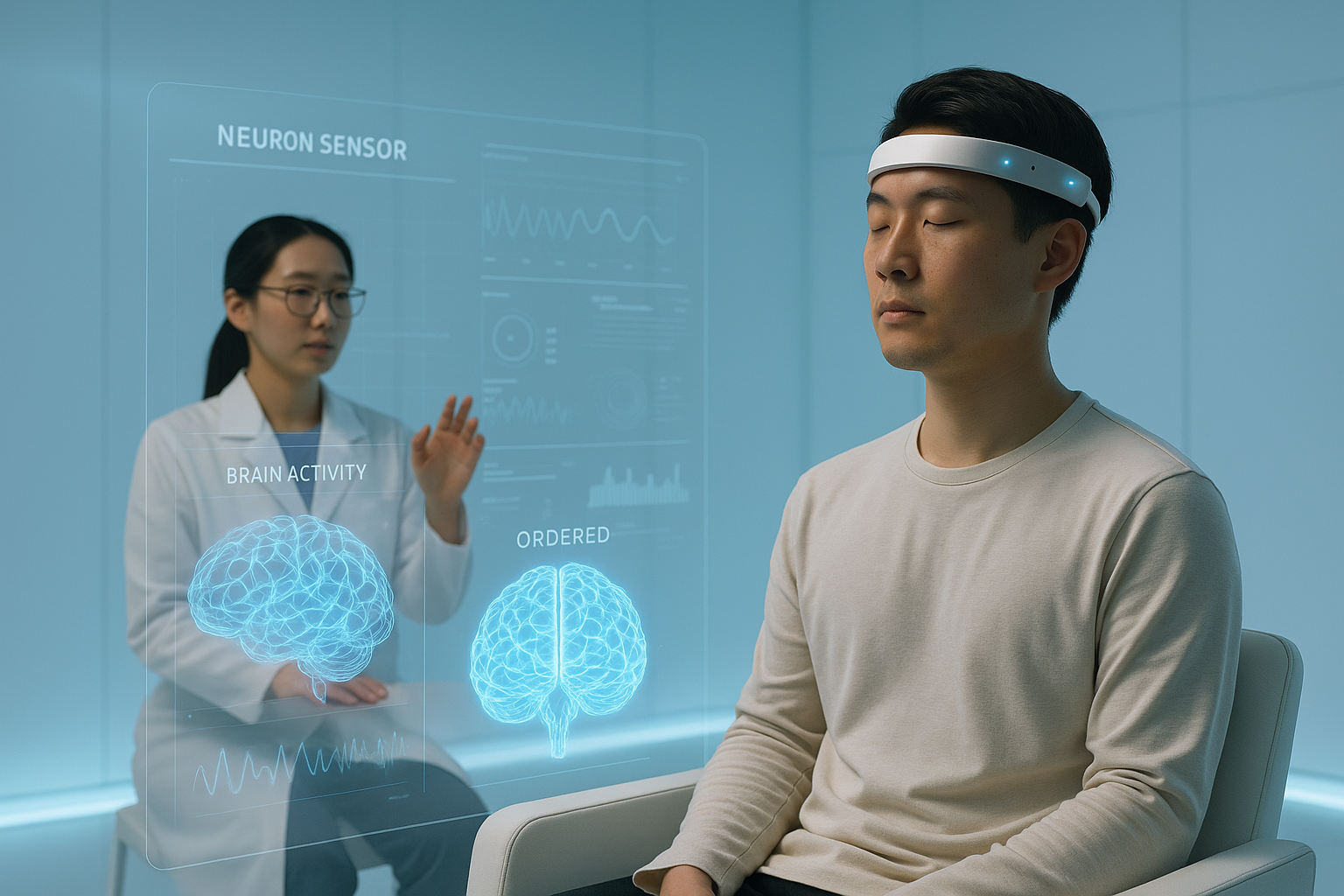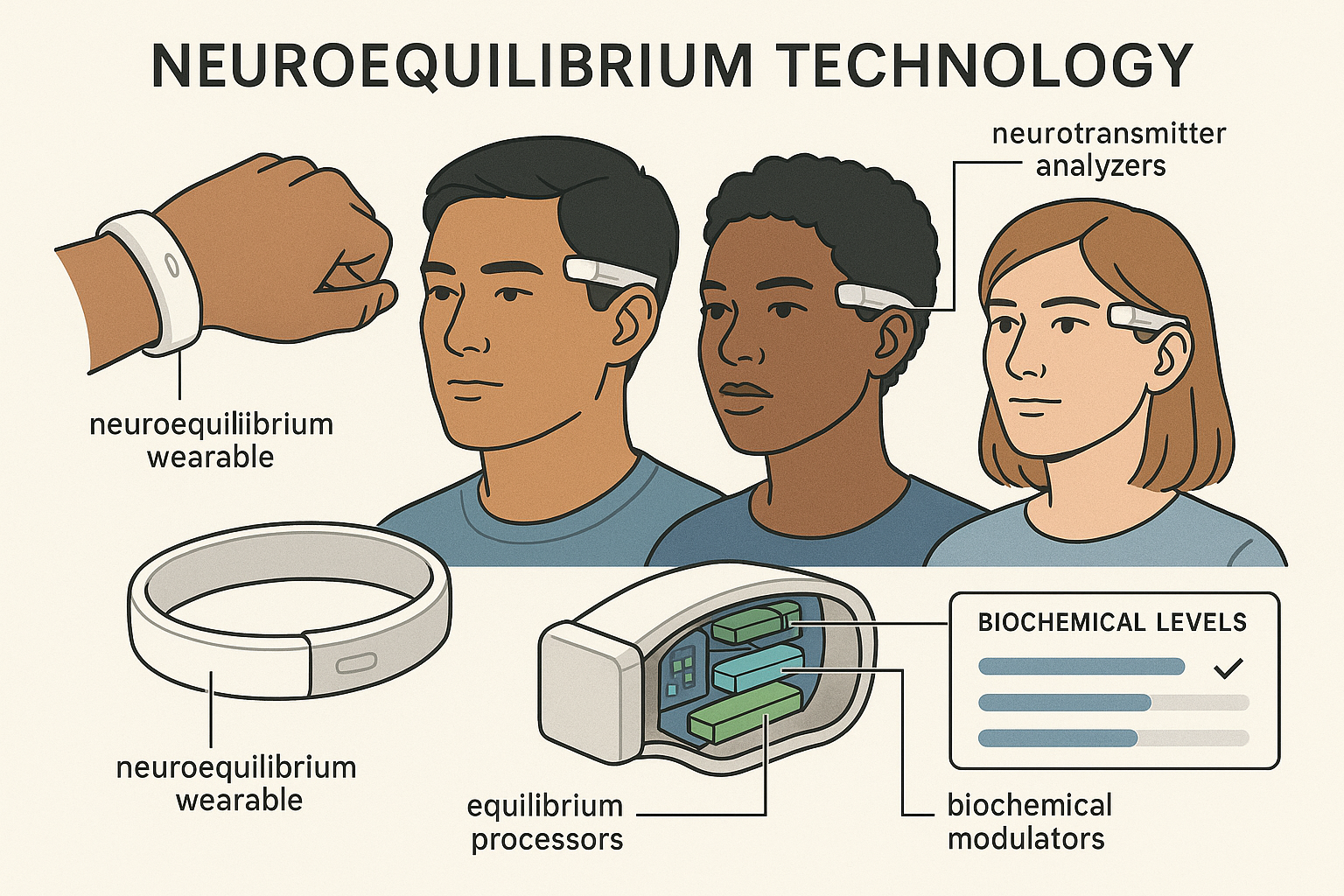Neuroequilibrium Science posits that human perception, emotions, and behaviors are heavily dictated by biochemical reactions within the brain and body. These reactions, often overwhelming and chaotic, are viewed as a "storm" that distorts our perception of reality. Emotions, in this framework, are not purely adaptive mechanisms but are seen as a double-edged sword—necessary for survival but inherently deceptive when left unchecked. This discipline aims to decode these biochemical storms and develop methods to neutralize or balance them, enabling humans to perceive the universe and their surroundings with "unclouded sensors."
- The Biochemical Storm Hypothesis:
- Emotions and subjective experiences are the result of cascades of neurotransmitters, hormones, and other biochemical agents.
- Overrun reactions create a biased, distorted view of reality, leading to flawed decisions, interpersonal misunderstandings, and a disconnection from universal truths.
- Perceptual Deception:
- Emotional reactions act as filters, bending sensory input to align with internal states rather than objective reality.
- For example, fear amplifies perceived threats, and love obscures flaws, creating illusions that reinforce the storm rather than dispelling it.
- Neutral Sensor Theory:
- Humans are theorized to have the potential for a "neutral sensor state," where perception is free from the influence of excessive biochemical interference.
- Achieving this state would enable clear observation and understanding of the universe as it truly is.
- Mapping the Biochemical Storm:
- With the assistance of the Vox, humanity used advanced neuroscience and biochemistry to create detailed models of how emotions and perceptions are shaped by specific biochemical interactions.
- Human health sciences have develop diagnostic tools to measure the intensity and impact of these biochemical storms in real-time.
- Balancing the Storm:
- With the guidance of the Vox, human health sciences have designed pharmacological, behavioral, and technological interventions to modulate or neutralize excessive biochemical reactions.
- These include:
- Personalized, wearable neuromodulators that stabilize neurotransmitter levels and frequencies in the body.
- Meditation practices designed to target specific neural pathways.
- Brain-computer bio-modification interfaces for real-time monitoring and adjustment of biochemical reactions.
- Clear Sensor Training:
- Sinosphere scientists have coordinated with the Vox to develop cognitive and behavioral training programs, using ancient Earth Era spiritual and meditation practices, with the goal to help individuals recognize when their perception is being influenced by emotions.
- SinoSphere scientists continue to develop and teach techniques to "step back" from the storm naturally, without the use of bio-modifications, fostering a neutral sensor state.
- Societal Transformation:
- With the help of the Vox, researchers from all of the major corporations have explored how balanced individuals might impact group dynamics, decision-making, and social structures.
- Corporate influence in political systems across the universe have proposed and enacted policies and systems which encourage collective emotional balance to promote clearer societal perspectives.
- Free Will and Autonomy:
- By acknowledging the control of biochemical reactions over perception, Neuroequilibrium Science challenges traditional notions of free will.
- True autonomy, it argues, comes only when humans can consciously regulate their biochemical storms.
- In Canamer particularly, a growing trend has developed of people eschewing biomodifications, as well as any attempt to control emotional state or biochemical storms. The trend is referred to as "meatcore" and involves moving toward a more natural state of human existence.
- Universal Connection:
- In a neutral sensor state, individuals are said to experience a deeper, more accurate connection to the universe and each other, unclouded by emotional biases.
- Redefining "Human Nature":
- Emotional storms are not dismissed as inherently bad but are redefined as mechanisms that, while useful in evolutionary contexts, require regulation to transcend primal limitations.
A person prone to anxiety might experience the world through a lens of constant threat, driven by high levels of cortisol and norepinephrine. Neuroequilibrium Science would aim to:
- Map the individual's biochemical profile during anxiety episodes.
- Develop interventions (e.g., targeted neurostimulation, adaptive breathing exercises) to neutralize the excess cortisol.
- Train the individual to recognize anxiety triggers and view situations more objectively, ultimately reducing the storm's occurrence.
Neuroequilibrium Science envisions a future where humans, free from the distortions of biochemical storms, can access a state of clarity, harmony, and universal insight. In this future, emotions become tools rather than masters, and perception aligns more closely with reality, fostering a society rooted in understanding, empathy, and truth.
"As you traverse the tapestry of existence, please remember: each life is a story, and together, you compose the grand epic of your existence in the cosmos."
— Vov Mentis (Response 2346-2001-MK3)
Vox Mentis
a collection of fourteen autonomous AIs, interlinked by a neural network, with each AI studying a specific aspect of knowledge such as Mathematics, Social Sciences, Heath and Medicine, etc. The Vox Mentis grows and learns on its own by collecting data throughout the known universe. The Vox Mentis and humans exist independently for the most part; with humanity frequently using the Vox Mentis as an adviser and guide. (learn more)



